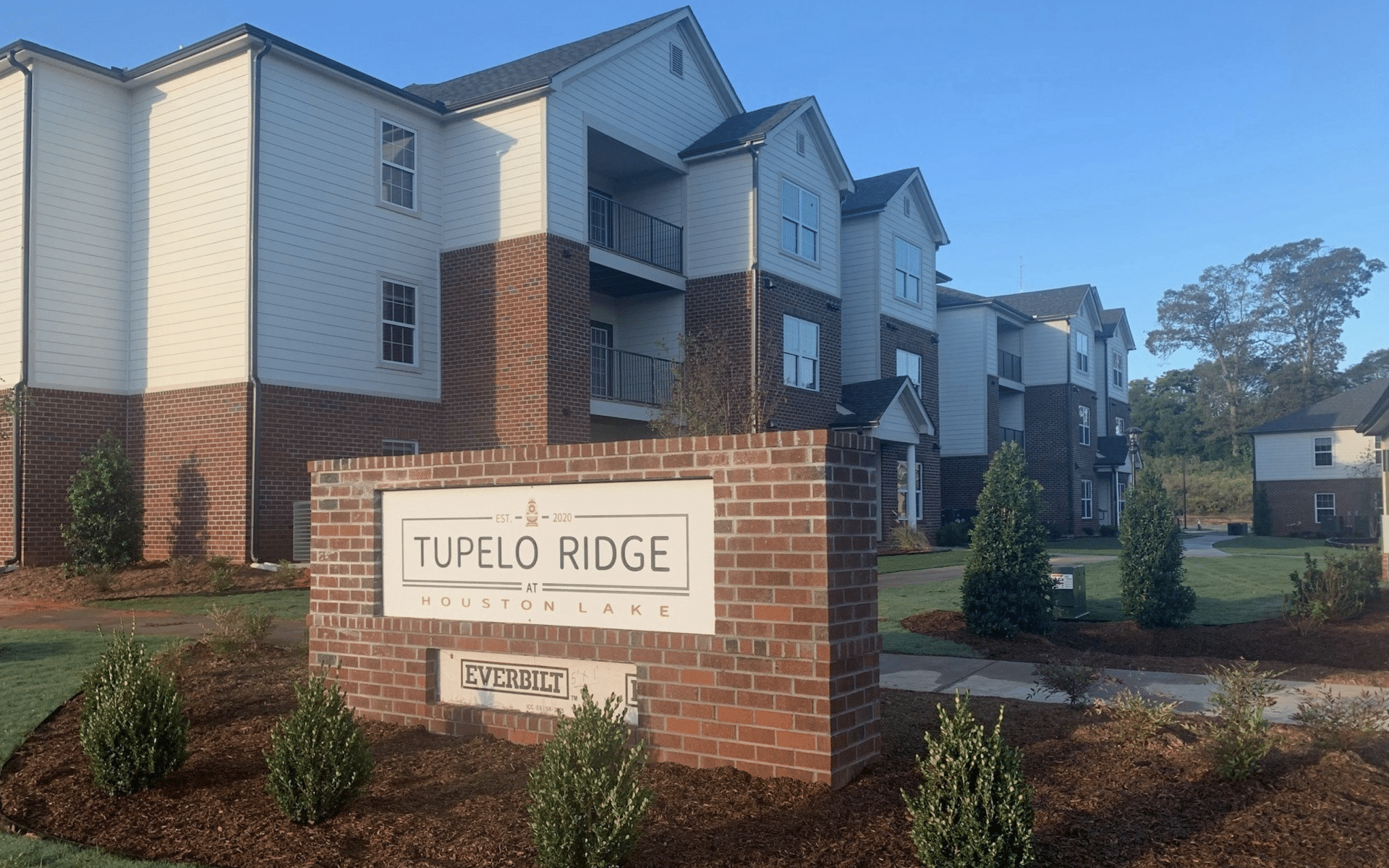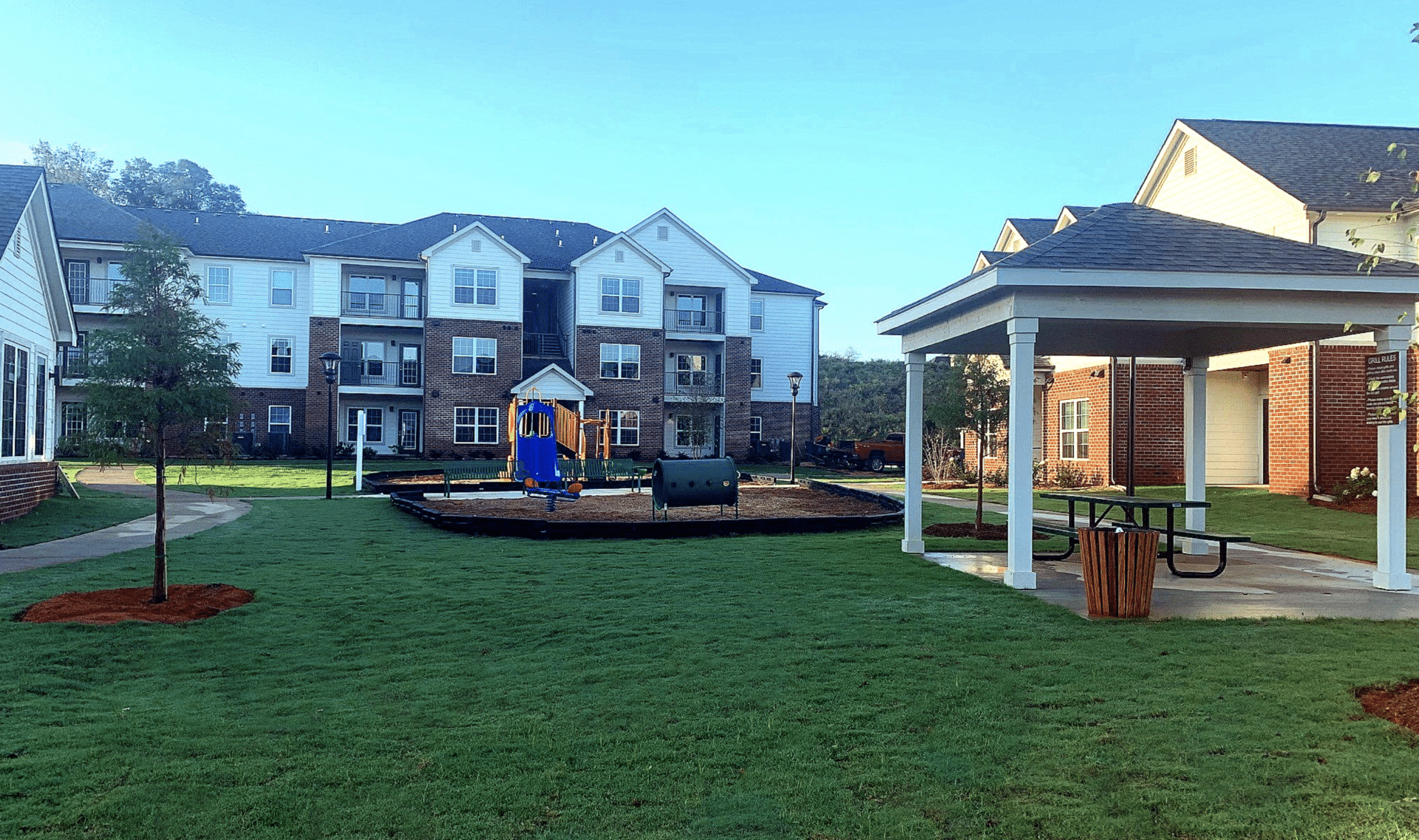Providing Early Literacy Support at Home
New Houston County Affordable Housing Apartment Complex Integrates On-Site Early Learning Center

Tupelo Ridge, a new apartment complex in Houston County, started welcoming families and individuals into 92 affordable rental units last month. Like any typical apartment complex, this development offers a fitness center, playground, community room, and other amenities. But what makes this apartment complex uncommon is that it utilizes a 1,000-square-foot, on-site early learning center in the clubhouse to provide young children with supports and services they need to boost early literacy skills and prepare them for success in school and life.
Located in Warner Robins, Tupelo Ridge is the result of the 2017 Innovative Project Concept competition sponsored by the Georgia Department of Community Affairs (DCA) through its Qualified Allocation Plan. The competition encouraged affordable housing developers to adopt innovative and replicable strategies that address barriers to quality education outcomes for tenants—while also offering a way for developers to strengthen their proposal for Georgia tax credits.
“When DCA announced that they wanted to seed concepts linking education and housing, I started brainstorming about how we could do that in our developments,” said Robert Fink of Zimmerman Properties, the developer of Tupelo Ridge. “I have three young children, and I thought about how my wife is always reading to them. I did some research online and realized the impact of third-grade reading on future social and educational outcomes. This led me to reach out to the Get Georgia Reading Campaign.”
Fink structured the staffing and organizational plan for the apartment complex’s early learning center around the Campaign’s four-pillar framework.
- To promote language nutrition, the center will incentivize families to use developmental milestones checklists to track their children’s progress and reinforce the importance of reading and talking with babies and young children.
- To ensure access to early learning and literacy supports, the center will include a wide array of books, including subscriptions to the Renaissance myON digital library, which features more than 10,000 children’s books.
- To provide families with positive learning climates, the center will host community partners, including the local libraries and Houston County Family Connection, to host story times and offer family friendly supports and services.
- To support teacher preparation and effectiveness, the center will partner with the local school system to align the reading content it offers with school curriculum and encourage parents to take advantage of Read Right from the Start online trainings to deepen their understanding of child and literacy development.
Prior to the opening of Tupelo Ridge, Get Georgia Reading Campaign leaders helped coordinate a virtual meeting between the property management team and several community partners to discuss ways to work together to ensure that the space was fully leveraged to support residents. Representatives from the local libraries, Central Georgia Technical College, United Way of Central Georgia, and Houston County Family Connection shared the types of community programming they offer—and discussed how they might be able to bring some of those programs to the housing development.
“People often just don’t know where to go to access resources—or they don’t even know that a particular resource they could benefit from even exists,” said Tian Foss, executive director of Houston County Family Connection. “When we can partner with the facilities where people live, we can ensure people are helped by the rich resources this community offers.”
While it’s unclear exactly which resources will make the most sense to bring to Tupelo Ridge’s residents until the complex is fully occupied and the partners can better understand residents’ interests and needs, the opportunities available include home visiting programs, Ferst Readers, Boys & Girls Clubs, and health department programs.
“I plan to host a resource fair in the community center so that we can bring agencies and nonprofit programs to the table and see what residents are most interested in,” said Foss.

The policies that made this project possible can be applied to any community in Georgia. DCA’s Qualified Allocation Plan, the policy document that sets out the competitive selection criteria for allocating Low-Income Housing Tax Credits, has long prioritized the educational achievement of children living in Low-Income Housing Tax Credit developments. Developers can earn higher scores by locating developments close to public schools, especially higher-performing schools, or by integrating educational enrichment programs into the development.
DCA updates the Qualified Allocation Plan annually but has consistently prioritized educational achievement for children living in affordable housing developments, using the Innovative Project Concept as a way to encourage developers to craft creative strategies not typically seen in Qualified Allocation Plan. DCA then integrates those innovations into future Qualified Allocation Plan guidelines.
“It’s crucial to leverage our state’s housing investments to support children’s education,” said Grace Baranowski, who previously served as a DCA senior housing policy analyst. “Development of affordable housing creates an asset for both the community and the families who live there. Through the scoring criteria within the Qualified Allocation Plan, DCA encourages developers to partner with local public and private service partners to consider how the proposed housing could be a platform to benefit children living there.”
As Fink and his team welcome families into Tupelo Ridge, plans are already underway to replicate the approach in other counties in Georgia with some developments to include a formal partnership with Star-C, a nonprofit organization that will provide wrap-around services to children and families. Construction will begin on 306 units in Clayton County in December followed by 72 units in Ringgold in January 2021.
“As we got further out of our lane of housing and into educational programming, we quickly realized that we needed to engage folks with more education expertise to join us and help execute that piece,” said Fink. “It’s been an excellent partnership and we’re now looking at other places where we can use this integrated model.”
